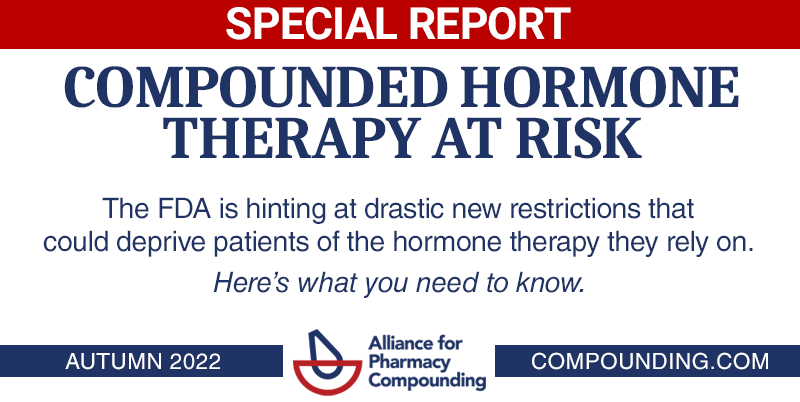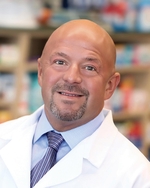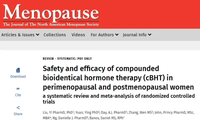Dear A4PC,
The email below was sent this week to more than 5,000 patients and prescribers who have visited compounding.com over the past year, as well as to 60,000+ patients are a part of APC’s P3 group (Patients for Personalized Prescriptions) and to nearly 2,000 prescribers who signed our August 2022 letter to FDA expressing concern about FDA’s threat to restrict compounded hormone therapy. We’re sharing it here for your information.
As you may know, APC’s Campaign to Save Compounded Hormones is running low on funding, and our ability to continue to engage patients, prescribers, and policymakers on this issue is in jeopardy. Please help us continue to fight for your ability to treat patients with compounded hormone therapy. Give to the campaign via the button below.
Best,

Scott Brunner, cae
Chief Executive Officer
scott@a4pc.org

Together, we can save compounded hormone therapy
 You may not know me, but we have something in common: We’re both concerned that FDA may restrict compounded hormones.
You may not know me, but we have something in common: We’re both concerned that FDA may restrict compounded hormones.
I know you’re concerned because at some point, via compounding.com, you either left a testimonial about how compounded hormones have helped you, or you sent a message of concern to your member of Congress. Or maybe you did both. So thank you.
I’m concerned because as a compounding pharmacist — and president of the Alliance for Pharmacy Compounding — I fear FDA may be about to rely on a discredited report to deny my patients the therapies that make them feel normal again, that make their lives more livable.
We’re told FDA could act any day to propose that compounded hormones are “difficult” and therefore cannot be compounded. The threat is real and persistent, and we’ll only defeat it by working together.
Please take a moment or two to read this update about the Campaign to Save Compounded Hormones — and be prepared to reach out to FDA and Congress again at the proper time.
Thanks for your concern and your support.

Dave Miller, RPh, PhD, FAPC
Keystone Pharmacy
Grand Rapids, Michigan
BREAKING NEWS
FDA takes aim at compounded thyroid hormone
FDA has declared desiccated thyroid extract (DTE) to be a biologic drug and therefore ineligible for compounding.
“No doubt, this is FDA’s first step in restricting compounded hormones, but it’s also a baffling move, both the substance of FDA’s categorization of thyroid hormone as a biologic and the back-door path they’ve taken in declaring it so, in a letter to a trade association rather than via a public communication or announcement,” said APC CEO Scott Brunner.
What can you do?
APC has reached out to FDA to request a meeting to discuss the agency’s action. We’ll know more after that meeting, and it’s likely we’ll soon issue a call to action for patients to reach out directly to policymakers.
If you are patient who benefits from compounded thyroid therapy or knows someone who does, stay tuned. There’s surely more to come on this issue.
FDA doubles down on using discredited report
The agency has informed members of Congress that the tainted NASEM report on compounded hormone therapy will inform its next steps on compounded hormones
First, FDA commissioned the National Academies for Science, Engineering and Medicine to produce an “independent” report on compounded hormones, but it wasn’t really independent at all. Now the agency is telling members of Congress that it plans to rely in part on that report as it considers its next steps on compounded hormones. Those “next steps” are generally interpreted to include considering and recommending restrictions.
Meta-analysis shows real benefit of compounded hormones
A meta-analysis of more than 29 research clinical trials involving compounded hormones, published in April by the journal Menopause, is exactly the sort of scientific review of compounded hormone research that the NASEM committee should have done, but failed to do.
While limited in scope, this new analysis of patient outcomes shows that compounded hormones provide patients real benefit with no more risk than FDA-approved therapies.
Yes, more studies of patient outcomes are vital, but this important review contrasts sharply with claims in the discredited NASEM report.
Real testimonials from real people who rely on compounded hormones
When we say millions of Americans, women and men alike, rely on compounded hormone therapy to help them live normal lives, we mean millions. You can read testimonials from several thousand of them at compounding.com — real stories from real people. And while you’re there — if you haven’t already done so — send a message to your members of Congress asking them to urge FDA to base any action on compounded hormones on real science, not that manipulated NASEM report.
Want to know what else you can do to help?
You’ve uploaded a testimonial at compounding.com. Great. You’ve sent a message to your members of Congress. Yay. What else can you do to help? Well, you could help support this effort financially …
Thus far, the Campaign to Save Compounded Hormones has largely been funded by compounding pharmacists. If you’re concerned about this threat and would like to support our work, your donation of $25 or $50 or $100 or more will certainly help us defeat threatened restrictions — and we can promise you that every penny of your contribution will go only to that effort. Here’s where you can give — or simply click the big red button below.
We’re truly grateful for your support of this effort.
Questions, concerns, or suggestions? Or maybe you’re Oprah Winfrey’s third cousin and you think you can get her to serve as a spokesperson for the campaign? Email APC at info@a4pc.org!
The Alliance for Pharmacy Compounding is the voice for pharmacy compounding, representing compounding pharmacists and technicians in both pharmacies and outsourcing facilities, as well as prescribers, educators, researchers, and suppliers.
In traditional compounding, pharmacists create a customized medication, most often from pure ingredients, for an individual patient pursuant to a prescription. Pharmacists’ ability to compound medications from pure ingredients is authorized in federal law and for good reason: Manufactured drugs don’t come in strengths and dosage forms that are right for everyone, and prescribers need to be able to prescribe customized medications when, in their judgment, a manufactured drug is not the best course of therapy for a human or animal patient.
Every day, APC members play a critical role in patients’ lives, preparing essential, custom medications for a range of health conditions, including autism, oncology, dermatology, ophthalmology, pediatrics, women’s health, animal health, and others.



 A meta-analysis of more than 29 research clinical trials involving compounded hormones,
A meta-analysis of more than 29 research clinical trials involving compounded hormones, 
 When we say millions of Americans, women and men alike, rely on compounded hormone therapy to help them live normal lives, we mean millions. You can read testimonials from several thousand of them at
When we say millions of Americans, women and men alike, rely on compounded hormone therapy to help them live normal lives, we mean millions. You can read testimonials from several thousand of them at